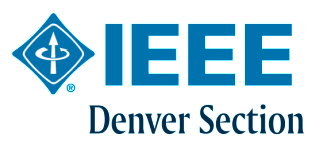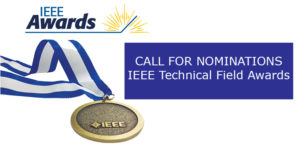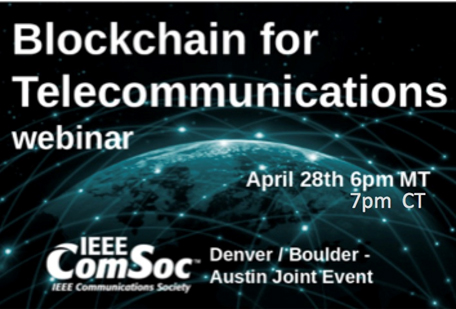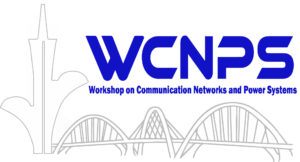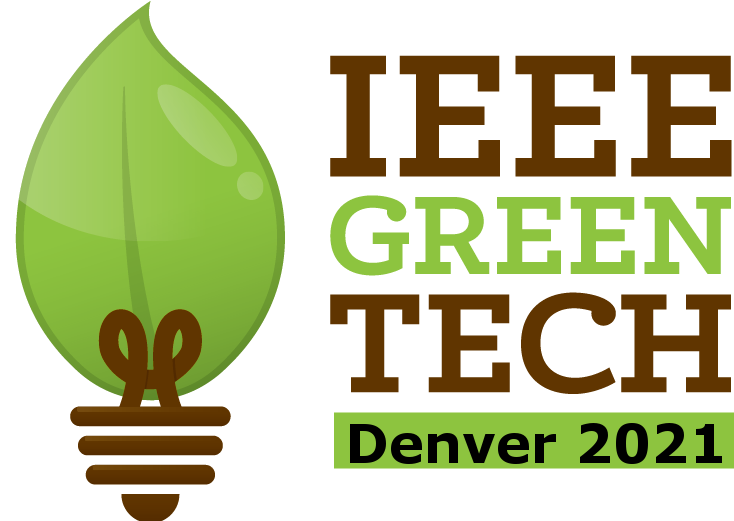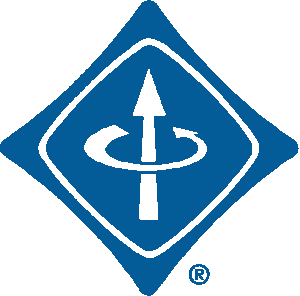 |
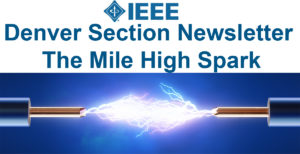 |
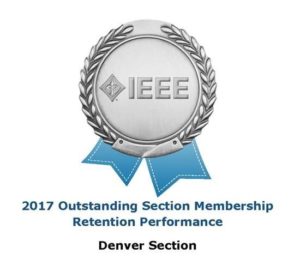 |
| AGL eDigest Newsletter | Applied Wireless Technology Magazine |
| Local Events | News | Interesting Links |
| On the Edge – Top 6 Autonomous Vehicle Use Cases. By Xilinx | Insight – Moving Beyond Perimeter Security – A Comprehensive and Achievable Guide to Less Risk. By Charlie Gero – CTO, Akamai Technologies |
| Guest Column – An interview with Tim Danks, VP, Risk Management & Partner Relations at Huawei Technologies about the anti-China sentiment in Washington. By Ernest Worthman | Hot Topic – Security Considerations for the 5G Era. By 5G Americas |
| Interesting Articles and While Papers |
| Is it Influence or Manipulation? A Case for an Internet Code of Conduct. By Cees Links, GM of Qorvo . |
| Fabless Challenges Of Integrating Complex Silicon Into The IC Package. By Mentor. |
| What’s the Difference Between Passive and Active Power Factor Correctors? By Maria Guerra, Electronic Design. |
| The ABCs of Interleaved ADCs. By Johnathan Harris. |
| Internet of Nano-Things, Things and Everything: Future Growth Trends. Mahdi H. Miraz, Maaruf Ali, Peter S. Excell, and Richard Picking. |
| eBook – Internet of Things From Hype to Reality; Second Edition. By Ammar Rayes and Samer Salamty. |
| Security Considerations for the 5G Era. By 5G Americas. |
| IoT Privacy and Security Challenges for Smart Home Environments. Huichen Lin and Neil W. Bergmann. |
| The Benefits of RF Testing for Mission-Critical IoT Designs. By Anritsu. |
| RTSA, Noise Figure, CAT, and OTA Portable Measurements. By Keysight. |
|
In This Issue
Open Positions Some of the Standing Committees where we could use some great volunteers include:
Actually just about anything you can think of, we’re interested in talking to you!If you are interested in volunteering, please send email to chair@ieee-denver.org. Positions will be open until filled. Try Something New!Whether you are active in IEEE ExCom, are a chair of a technical society, or just a paying member, we thank you for being a part of something that we think is pretty great. If you want to get more involved, you know where to find us! And if you just want to enjoy the hard (and not-so-hard) work of our volunteers by attending our events we would love that even more! Take advantage of the monthly volunteering efforts we have put together for you. Try something new, meet some new people, and learn something new by listening to a distinguished lecturer. Oh, and thank you for being a reader of our newsletter! |

Message from Jason Rupe, Chair, IEEE Denver Section. What do you want from your IEEE Denver section? For about 6 months now, the nation and the Denver section has been adjusted to life under the pandemic. Most of the Denver section activities were in person before the pandemic and, like much of the world, have gone online for meetings and events. Social distancing practices have made technical conferences and in-person operations meetings impractical. The adjustment has forced us to utilize resources such as online meetings and rely on them. It has also forced us to become more efficient and adept at using such resources. But the impact of all of this has been more than just doing what we used to do but from home. As we shift to online meetings, the effect is leveling. Those of us who used to struggle with traffic and long distances to attend meetings no longer have that disadvantage. All of us attend remotely, which means we have to make that experience functional. As long as each of us has internet access, we can participate. As we learn how to hold more effective meetings this way, it also changes what we can do as a community. We have the potential to better serve the community and Denver section membership. But what do we do to achieve that? For these reasons, we ask all of you to consider what would you like to see the Denver section do in these different times, as we work through the pandemic. I fully expect that, if we do a great job reinventing ourselves, we can learn much and take forward what we learn when life becomes more normal. If we find new ways to serve the larger community, particularly those who could not reasonably participate in Denver section activities, then we will want to continue those ways. So now is the perfect time to provide your input. Please let us know what you would like to see us do. Or even better, what would you like to make happen through the Denver section. Now is the time to share your input and help build a better section. Please let me know personally by email or contact the Denver section ExCom or your favorite chapter with your input and ideas. With your ideas and efforts, we can create new value for the whole section, and perhaps share our great achievements with other sections too. From the Editor, Ernest Worthman Dissecting Government Contact Tracing –Reality Check One of the tools that have been on the lips of nearly everyone as a result of this pandemic is “contact tracing”. Exactly what is this and why is it important? Most of you probably know this but, for the sake of clarity, let us do a quick overview. In short, contact tracing starts with tracers conducting short, over-the-phone interviews of newly diagnosed patients about who they have recently been in close physical contact. The idea is that recent contacts are in peril of contracting the virus from the individual before they became symptomatic. Next, these recent contacts are called by tracers, informing them of this risk and encouraging them to seek testing and self-quarantine immediately. Tracers continue this process down the line to reduce the instances in which the virus is transmitted. This has been used, quite successfully, over the years. So, it is no mystery why some health experts are flocking to it in the current crisis. However, using one of my favorite saying, all that glitters is not gold, contract tracing is not a magic bullet. Before contact tracing apps, the process of telephone tracing was fairly benign. This was before the age of the digital transformation when data was largely private. The only data that was given to tracers were names and telephone numbers. Furthermore, data were collected by telephone and kept in files (digital or physical, depending upon the era). Therefore, the risk of data leaking was relatively small. It was also before the time of data breaches and identity theft, and such. That, however, has changed in recent history. Now, contact tracing is enhanced with your smartphone, which, usually has your entire life on it, as well as a ton of sensitive information. This has led to a new vector in contact tracing – how to ensure privacy is guaranteed. It is a major issue. And not everyone is onboard – from individuals to countries. For example, The Dutch data protection authority, Autoriteit Persoonsgegevens, has come out with its recommendation that the legislation in the Dutch Parliament is not passed. The bill will be used to collect additional data on users and share it with Statistics Netherlands. On a global scale, this is one of those situations that has shifted the basic premise of contact tracing. For months now, talking heads in the government and media have hailed the strategy as the country’s saving grace. One NBC headline read, “Coronavirus contact tracing could stop COVID 19 and reopen America,” and a CNN article declared, “the U.S. – or really any country – can’t safely reopen without significant amounts of contact tracing and testing.” Oh boy! Another example of the media taking some data and running with the “if it bleeds, it leads” mentality – the smartphone contact tracing app is sure to be the panacea that will allow everything to return to normal. If one listens to these talking heads, this seems like a dream come true situation. Use a smartphone to automatically collect data about an individual and all the places they have been and who they have been with. However, as this column unfolds, this will, sadly, not be anywhere near what the media presents. It is true that smartphone apps are being developed to conduct the digital form of contact tracing. Phones running the app exchange unique encrypted numbers via Bluetooth, which are then stored on the devices. If an app user is diagnosed with COVID 19 they are “supposed” to notify the app. If they do so the app publishes the log of numbers this phone received in the last fourteen days. If one of these numbers matches one stored on another user’s device, the app will send that user an alert that he has been in recent contact with a newly diagnosed COVID 19 patient. However, drilling down on this, digital tracing apps are riddled with significant problems. First of all, this is, pretty much, and all (most) or nothing proposition. If the apps are not downloaded and taken seriously by close to 100 percent of the Populus, those not using the app will still infect other and no one will be the wiser. This can only work if they are ubiquitously implemented and in widespread use. There have been some musings around this. So far, the app is voluntary in the U.S. (unlike China and South Korea). Presently, around 20 percent of Americans still do not own smartphones. Moreover, a recent poll noted that only about half of those who do would consider downloading a tracing app at this time. That situation is enough to challenge the concept. There are other issues as well. For example, I only tend to use my smartphone when I am mobile. There are times when I am out and do not have my phone on me or it is in the car. Therefore, I could easily come in contact with infected persons and it remains under the radar. There are other conditions that exist that can invalidate the concept, as well. For example, in buildings, indoor airflow poses a risk of spreading infectious droplets across rooms and throughout entire buildings – far beyond the six-foot proximity the apps look for. Another issue is infected surfaces, which can harbor traces of the virus for minutes, hours, even a few days. The apps have no way of accounting for such conditions. That chips even further away at their overall effectiveness. Furthermore, there are circumstances where people are physically close together under conditions that are highly unlikely to transmit the virus. Retail checkout lines are an example, where customers are separated from the clerk by a plexiglass shield. The way the app is designed, this would trigger an alert to be sent to the user’s phones, warning them of possible COVID 19 exposure with no further explanation, setting off a false alarm and, creating worry and confusion. Then there is the fact that contact tracing and app adoption is completely voluntary in the U.S. (unlike nations such as China and South Korea). Furthermore, there are issues with asymptomatic transmission. Early findings suggest that the virus undergoes considerable shedding in patients not showing symptoms. There is also new evidence that the virus can remain in the air longer than first thought. This seems to indicate that asymptomatic transmission is problematic. Viewed through this narrow lens, it would seem that there is cause to worry. However, much of the limited data suggest that the prevalence of asymptomatic transmission is rather paltry. However, there is also evidence pointing to the contrary. A second issue is that catching COVID 19 is not activity-specific, unlike other viruses like, say, HIV. Individuals in close proximity to a contagious COVID 19 patient is at risk for inhaling virus-ridden droplets that have been expelled – it does not matter where people are or what they are doing. That suggests that the virus may often be transmitted between strangers, in which case contact tracing is rendered impossible, as tracing relies upon patients recalling their recent contacts. On top of that, COVID 19 symptoms are not always the same as typical flu viruses. The way it manifests itself is multifarious, with some patients exhibiting only irregular symptoms not usually associated with the virus, like loss of smell, rash, and delirium. Many of its key symptoms, dry cough, fever, and shortness of breath, are also found in a variety of other illnesses, further muddying the waters. These are some of the practical and realistic issues around contract tracing. While the concept is valid, the implementation is fraught with challenges. It will be interesting to see where this goes. For Members Only: All IEEE-USA eBooks and Audio Books Now Free to All IEEE Members! All IEEE members can now access for free titles on careers, skill development, professional development, and other topics from industry veterans such as Caring for Your Project Team, by Harry T. Roman; The In’s and Out’s of Mentoring, by Peggy Hutcheson; and Critical Thinking Skills for Engineers–Book 1: Analytical Skills, by Sridhar Ramanathan. Members can also now get free IEEE-USA’s first comic book, complete with new engineering superheroes, The Slate Twins: Caught in the Currents, Vol. 1, by cartoonist Jeff Knurek. Browse the full collection of IEEE-USA eBooks and audio books from the IEEE-USA Online Shop. Log in with your IEEE account to download more than 150 titles for free! You can get titles currently available, as well as future IEEE-USA eBooks and audio books. A limited number of reports, such as the annual IEEE-USA Employment Survey, and other surveys, are not included among the free eBook titles. IEEE Members can purchase these reports for a discounted rate. CALL FOR AUTHORS IEEE-USA eBOOKS seeks authors to write an individual eBook, or a series, on career guidance and development topics, and practical skills engineers at all levels can use to do their jobs better. If you have an idea you think will benefit members in a particular area of expertise, please email your proposal to IEEE-USA Publishing Manager, Georgia C. Stelluto, at g.stelluto@ieee.org. IEEE-USA serves the public good and promotes the careers and public policy interests of nearly 190,000 engineering, computing, and technology professionals who are U.S. members of IEEE. Web: https://ieeeusa.org/ Facebook: https://www.facebook.com/ieeeusa/ Twitter: https://www.twitter.com/ieeeusa/ Join IEEE: https://www.ieee.org/join/ CALL FOR NOMINATIONS 2020 MGA Individual Awards Program: Deadline 15 October 2020 You can help recognize the efforts of outstanding volunteers by nominating individuals for one of the prestigious IEEE Member and Geographic Activities (MGA) Awards. Each award has a unique mission and criteria and offers the opportunity to honor distinguished colleagues, inspiring teachers, and corporate leaders. If you know someone who has made substantial regional IEEE volunteer contributions through innovative projects, exemplary leadership, service, or by fulfilling the goals as related to transnational activities, consider nominating them for one of the following awards:
Please visit the MGA Award nomination web page to review the nominator guidelines and eligibility requirements. MGA awards are peer-recognized awards; therefore, self-nomination is not permitted. The deadline for nominations is 15 October 2020 (for the completed nomination form and two letters of endorsement). MGA Awards & Recognition Program Nominations are now being accepted for the 2022 IEEE Technical Field Awards! Each year, the IEEE Awards Program honors distinguished engineers, scientists, technologists, and practitioners who have contributed to the IEEE’s technical fields of interest. These are amongst the highest-ranked awards in the IEEE portfolio. If you have a colleague that is eligible, we invite you to start a nomination today! BLOCKCHAIN FOR TELECOMMUNICATIONS
As the third seminar covering Blockchain in Telecommunications, the IEEE Denver Blockchain Initiative recently hosted a webinar including how requirements for 5G, IoT, AI, and Blockchain can be extended to other use cases such as healthcare/telehealth, first responders/public safety, and key building blocks of smart cities. On April 28, 2020, Austin-Denver/Boulder IEEE ComSoc Chapters presented a special well attended virtual webinar on blockchain and communications: https://comsoc.ieee-denver.org/2020/04/29/blockchain-for-telecommunications-comsoc-webinar-series/ The event was hosted by:
and supported by IEEE Communications Society NA Regional Board – https://na.regions.comsoc.org/board/ The program and speakers were introduced and moderated by Tim Weil, CISSP/CCSP, CISA, PMP Chair – Denver Blockchain Initiative (IEEE) Topics/Speakers:
Claudio Lima, Ph.D., Co-Founder Blockchain Engineering Council, BEC
Blockchain distributed ledger technologies (DLT) in Telecommunications is a new concept that can tremendously improve telecom networking operations and customer-facing processes experience, adding a new layer of authentication, validation, and security for all telecom assets and transactions. This talk will introduce some basic concepts of Blockchain applied to Telecommunications.
Chris Gorog, CTO Blockframe
Distributed Ledger technology is unfolding rapidly and the potential for many use cases is being theorized and debated. Our session explores the nature of current technologies for certificate management and global deficiencies in how Certificate Hierarchy and in particular Certificate Revocation is handled.
Fawzi Behmann, DL, MBA, M. Comp.Sc, President TelNet Management Consulting Inc.
5G, IoT, AI, and Blockchain are key disruptive technologies that could shape the future enablement of technology in telecommunications. The talk covered the explosive growth in the disruptive technologies, Described a walkthrough use case of Telecom Network Management covering monitoring through sensors, communications, processing and control at the edge (International gateways), and analyzing data at the network end-to-end to deliver quality of services. We love to hear your feedback. Please email to Fawzi. Behmann, f.behmann@ieee.org or Tim Weil, trweil@ieee.org
The IoT Vertical and Topical Summit on Tourism (IoT-VTST’20) – Sardinia, Italy 8-9 September 2020 The IoT Vertical and Topical Summit on Tourism (IoT-VTST’20) will bring together global professionals from industry, public sector, and research community on the beautiful island of Sardinia, Italy. The choice of the theme “Hospitality Industry 4.0” is motivated by the fact that the tourism sector is a major source of revenue for most countries. Notably, the Italian cultural heritage includes the largest number of sites declared by UNESCO as World Heritage Sites. However, more than one-third of Italian institutions that belong to the cultural sector – which attracts tourists – do not use innovative technologies to enhance the visiting experience and best leverage touristic resources. Accordingly, the Summit is designed to foster dialogue amongst professionals from the industry, the public sector, and the research community from all over the world to improve the adoption of the IoT technologies in this Tourism sector. Key Talks, Panels, and Technical Papers describing original research within will include:
IMFW 2020 Conference date: Oct. 28-30, 2020 IMFW 2020 is the first International Microwave Workshop dedicated to the microwave/terahertz filter community, both academic and industrial segments. The event is organized by the IEEE Microwave Theory and Techniques Society (MTT-S) with the technical co-sponsorship of the European Microwave Association (EuMA). This Workshop represents a unique and unprecedented opportunity to bring together scientists from industry and academia around the world, that specialize in filters, to share the most recent advances in filter theory, technology, and manufacturing issues. There will be significant interaction between industrial expertise and academia, by intent. After this first event, organized in Perugia in Italy, the Workshop will be held in other parts of the world, locations where microwave academia interacts strongly with the industrial microwave community. This event provides a good opportunity for the filter community to interact in a venue that is both academic and industrial, without the need for an expensive journey to a major multi-disciplinary event. Authors of accepted papers will be encouraged to submit an extended paper for a mini-special issue in the IEEE Transactions on Microwave Theory and Techniques. Don’t miss IMFW 2020. You won’t get a second chance to attend this very first event!!! CONFERENCE TOPICS Prospective authors are cordially invited to submit papers in all areas of filter theory, technology and manufacturing, including but not limited to:
Conference General Chair Cristiano Tomassoni University of Perugia, Italy cristiano.tomassoni@unipg.it Conference General Co-Chair Richard V. Snyder RS microwave, NJ, USA rsnyder@rsmicro.com Technical Program Chair Giuseppe Macchiarella Politecnico di Milano, Italy giuseppe.macchiarella@polimi.it Technical Program Co-Chairs Simone Bastioli RS microwave, NJ, USA;Vicente E. Boria Univ. Politécnica deValencia, Spain; Ming Yu Chinese University of Hong Kong Conference Finance Chair Gian Guido Gentili Politecnico di Milano, Italy gianguido.gentili@polimi.it Publication and Website Chair Roberto Gómez-García University of Alcala, Spain roberto.gomez.garcia@ieee.org Awards Committee Chairs Raafat Mansour University of Waterloo, Canada Miguel A. G. Laso Public University of Navarre, Spain Industrial Liaison Roberto Sorrentino RF Microtech, Italy Liaison to Space Activities Petronilo Martin Iglesias ESA/ESTEC, The Netherlands VTC2020-Fall Deadline Approaching! VTC2020 in Victoria will feature world-class technical sessions, workshops, and tutorials on, but not limited to, the following technical tracks.
Workshops – Workshops provide invaluable opportunities for researchers and industry practitioners to share their state-of-the-art research and development results in areas of particular interest. We invite submissions of cutting-edge workshop proposals to complement the technical program of VTC2020-Fall. Workshops will cover specific topics with a mix of regular papers, panel discussions, keynotes, and possibly poster presentations. We ask for proposals that deal with topics in emerging areas of mobile and vehicular technologies. Topics of interest include but are not limited to:
The paper submission process will be arranged and handled by the online TrackChair system. Tutorials – Open Tutorials provide opportunities for researchers from academia and the industry to learn about the state-of-the-art research and development from experts in a given field. The IEEE VTC2020-Fall Technical Program Committee invites submission of tutorial proposals for half-day presentation on topics of interest to the conference, such as (but not limited to):
WCNPS 2020 – 5th Workshop on Communication Networks and Power Systems
|



